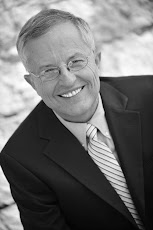But the world has some things it can teach churches as well. Or, put another way, Christians and churches can learn some things from the world, too.
My dear mentor, friend and hero Don Pickels, former managing editor of the Houston Chronicle and also prior to his death a very devout Episcopalian, helped to create an amazing legal legacy for the people of Texas. It was called the "open-meetings law". It was passed by the Texas Legislature under pressure from the Houston Chronicle management and others. It was adopted in the wake of the Sharpstown Scandal, which occurred in the early 1970s and rocked the State of Texas dramatically after evidence surfaced that public officials were meeting secretly and making financial decisions that should be made only publicly.
I was reminded of this law two years ago when I was asked to serve on my home city's Plan Commission. As soon as I was officially elected by our City Council, our City Attorney called to tell me that I must spend about an hour watching a video created by the Texas Attorney General about the law. He even cracked that the law had something to do with pressure from the Houston Chronicle. I knew immediately to what law he was referring.
In simple terms, the video told us public officials that we must conduct our business out in the open, not secretly behind closed doors. As I sat for an hour and watched the video, I marveled how clear and precise the law was. Only an idiot could not understand the plain language and terms of the law and the video explaining it as well as the penalties for violating the law. Afterward, as I began my tenure on the public commission, I was grateful that I was schooled so quickly in such matters.
What I liked most was that the law is non-partisan, meaning it applies equally to Democrats and Republicans as well as Independents and other party members. I'm sure some politicians—being the personalities that they are—have tried to circumvent the law, but to my knowledge it has been administered fairly and equally in the State of Texas.
Regrettably, I know of no church bodies that have a similar law or policy. Texas' laws do not apply to churches, only government bodies. The same is true of "open-meeting" laws in other states. I've known a few people to argue that their religious organization has an "open- meetings" policy or rule, but on further investigation discovered that what they were referring to was nebulous, vague and filled with all sorts of loopholes—or in some cases was just the figment of the person's imagination.
Today in too many churches and denominations too much church business is conducted in the dark. Whether it is couched as a "forum" or "private dinner for trustees", a "deacon's meeting for deacons only" or a "closed church business session", it's all the same thing: God's business conducted in darkness.
On pages 250-251 in Witness to the Truth, I describe in detail the closed-door, unhealthy situation in the Southern Baptist Convention that I found when I arrived there to work in the early 1990s. Closed meetings remain the order of the day in the SBC, both in the denomination as well as in local churches.
In the wake of Vatican Council II, Roman Catholics learned to be more open and public, but they still have a long way to go to overcome their long history of conducting business in the dark.
Many other denominations have the same problem.
I know I'm an idealist, but I'd like to see all churches and denominations take a cue from the Texas Legislature and change this closed-door situation by adopting clear and unequivocal open-meetings laws or rules.






1 comment:
Very interesting story. Thank you for the words you said about my dad Don Pickels. We really miss him!
Post a Comment